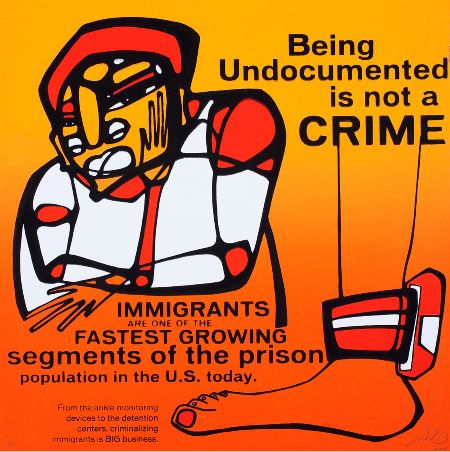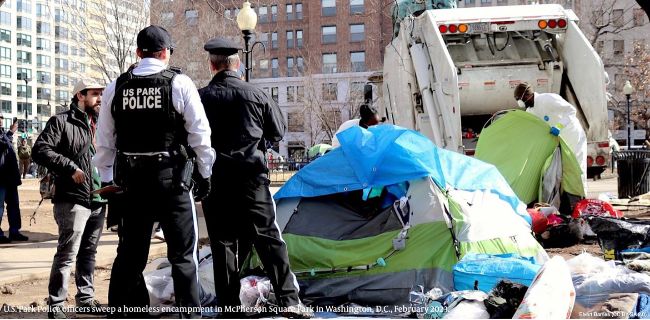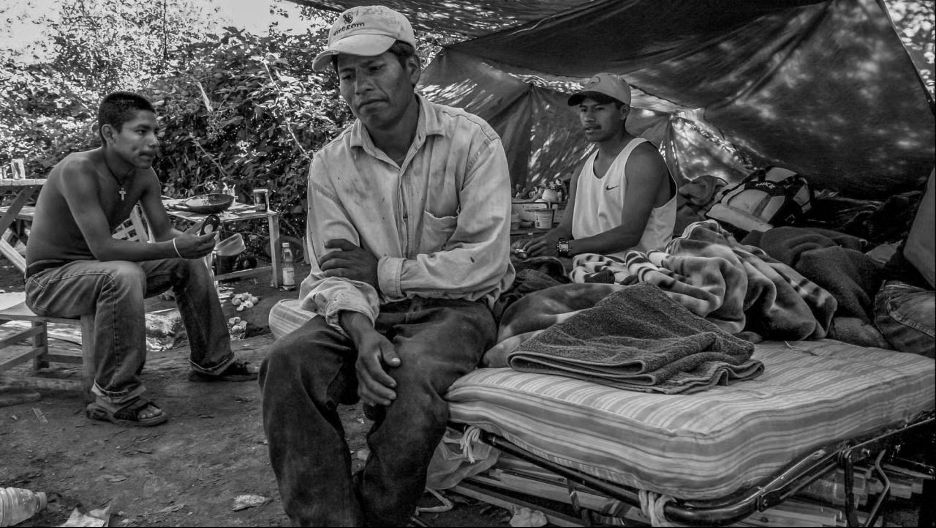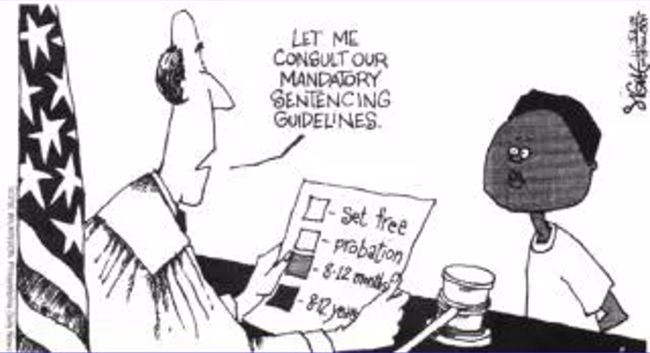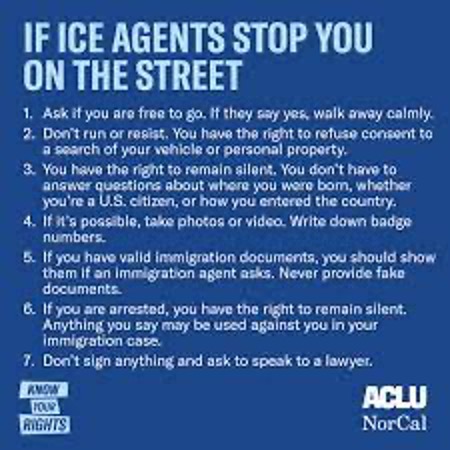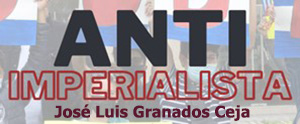|
|
The weekly newsletter of the Mexico Solidarity Project |
|
Every issue archived online at mexicosolidarityproject.org/archives/ |
|
October 01, 2025 |
|
|
|
Rethink Justice, Since We Are All Criminals |
|
Meizhu Lui, for the editorial team |
|
|
Breaking the law is as common as mud. Every one of us will probably do something illegal, or be accused of it, at some point in our lives. I’ve been charged in court with letting my dog knock a man down and arrested for obstructing access to private property during a demonstration.
What constitutes a crime and what punishments are appropriate are questions that concern all of us as we encounter our own tangles with the law. They are questions legislators ask as they define — and re-define — what constitutes a crime. And, as we hear from Chesa Boudin about his stint as district attorney of San Francisco, prosecutors make daily decisions about how to deal with offenders.
Unlike Indigenous systems, where the goal of criminal justice is to repair broken relationships within the community, a capitalist system focuses on punishment, removing offenders from society by putting them in prison. But we know from the US “War on Drugs,” also exported to Mexico, that “tough” sentencing — incarcerating individuals for relatively small crimes — has only filled prisons to overflowing with mostly Black and brown folks, while failing to deter crime or reduce drug use.
Recognizing that punitive systems don’t solve underlying social problems, Mexico’s President Lopez Obrador promoted a “hugs, not bullets” approach whenever possible for young offenders. “Hugs” mean job training with decent jobs at the end and programs such as Boudin recommends — anger management, drug treatment and other support. Lopez Obrador and Boudin share a similar perspective. When poverty is the real crime, then removal — imprisonment or deportation — punishes the victims, not the perpetrators: the ruling elites who define crime and punishment.
So should walking across the border to provide needed labor in the US be a punishable crime? Migrants deserve a warm welcome and the opportunity to live and work without fear. |
|
|
Being Undocumented is NOT a Crime |
|
Chesa Boudin is the founding executive director of Berkeley’s Criminal Law & Justice Center, a policy and advocacy hub. He served as San Francisco’s elected district attorney from 2020 until 2022, where he implemented reforms to ensure that the criminal legal system delivered safety and justice for all. His reforms included refusing to assist Immigration and Customs Enforcement, or ICE, with raids and arrests. Boudin’s work has appeared or been profiled in The Yale Law Journal, The Journal of Criminal Law & Criminology, The New York Times and many other publications. |
|
|
Who decides what constitutes a crime? Has it always been a crime for immigrants to be in the US without papers?
It’s Congress, state legislatures and city councils that define what constitutes a crime. Not every jurisdiction defines crime in the same ways, and definitions often change over time. Being undocumented is NOT a chargeable crime, nor is overstaying a visa, but those without papers can be deported. What IS defined as a crime is entering the US without permission — but it’s a minor crime, a misdemeanor the first time, a felony after that. |
|
|
|
|
Favianna Rodriguez, Justseeds Artist Cooperative: Being Undocumented is Not a Crime, 2008 |
|
|
|
Historically, illegal entry cases were handled in border communities at the point of entry. Under the Trump administration, the Justice Department prosecutes people in the country’s interior, far from any border, rounding up people on the mere assumption that they entered illegally. This is unprecedented.
For a misdemeanor, the state’s statute of limitations is usually a year; for federal crimes, it’s five. But the Justice Department is arresting residents who’ve been living and working in the US for as long as 25 years.
Trump riles up the base with his choice of words — he calls migrants “criminals” when, legally, they aren’t. Some corporate bigwigs cheat on their taxes or engage in illegal dumping. Are they called criminals?
As a prosecutor, you didn’t choose to prosecute people on the wrong side of the law because of “quality of life” issues. What did you mean?
Many laws make being poor a crime. When poverty is the root cause of an offense, arrest and incarceration don’t solve the problem.
Take sleeping on the street. While I was in office, the Ninth Circuit Court of Appeals deemed prosecuting people for protecting themselves from the elements “cruel and unusual.” A better solution? Build shelters! Few cities have enough shelter beds. Arrest for urinating in public? How about some public toilets? |
|
|
Photo: Elvert Barnes, Homeless sweep in Washington DC: Christiana Stalmaker, The Progressive, 2024 |
|
And shelter policies shouldn’t just push people back into the street — some only allow a three-night stay, and some have separate men’s and women’s quarters, so families can’t sleep together. Some don’t allow dogs. A homeless person often relies on their dog to keep them safe — they’re not going to abandon their dog.
Resources are limited for taking cases to court — it requires investigative, legal and administrative staff, and, often, it costs to keep the accused person in detention. But prosecutors have always had broad discretion; I chose to focus on prosecuting the most serious offenses, not crimes stemming from poverty. For migrants accused of illegal entry, it’s more efficient to expedite deportation than to prosecute criminally.
Trump has politicized this prosecutorial discretion. If prosecutors don’t pursue every case, he accuses them of not caring about public safety, of not being “tough on crime,” in order to turn public opinion against them. His “tough on crime” amounts to “tough on poverty.”
Many of those who overstay visas are seasonal workers who used to come and go without a problem. What’s different now?
In the past, employers needed seasonal workers, and workers came for the harvest and then went home to their own farms in Mexico. This doesn’t work anymore for two main reasons. |
|
|
In Graton, migrant indigenous Chatino workers from Oaxaca live under tarps next to a field of wine grapes. Their cultural practices and family ties helped them support each other while looking for farm work in one of the wealthiest wine-producing areas of the United States. (Courtesy David Bacon)) |
|
First, Mexico’s neoliberal governments, before the Morena party won in 2018, let foreign agribusinesses come into Mexico and squeeze out local farmers, decimating rural livelihoods. Second, beefed-up border enforcement prevents workers from traveling back and forth easily. Therefore, if they want to return home and then come back to pick the fruit or vegetables, they are forced to cross illegally and risk rape, extortion and murder. The border militarization makes people reluctant to return home; it’s actually US policies that cause people who used to return home to overstay.
You advocated for a more equitable criminal justice system that doesn’t disproportionately penalize the poor. Can you give an example?
A great example is how bail is handled. When someone is arrested but not yet charged or tried, the law calls for a presumption of innocence until proven guilty. Taking people’s freedom away before convicting them is unconstitutional, unless the court finds a significant flight risk or a risk to public safety. |
|
In most places, if arrested, you can pay a non-refundable fee to a bail bond agent. Dangerous people who are rich can thus avoid jail. If someone is charged with attempted murder, the bail will be set high, say at one million dollars. |
|
|
Mom and Pop Bail Bonds: for ACLU Northern CA, 2017 |
|
For a fee of 10%, which is $100,000, the wealthy person stays out of jail even if they might then go out and commit the murder!
But for common offenses like driving without a license — which many immigrant workers find unavoidable — a lot of people can’t afford even a low bail and get stuck in custody, which contradicts “presumption of innocence.” Custody is punishment. They can’t go to work or be with their families causing them economic and social harm, and their detention is NOT related to flight risk or public safety. |
|
|
Signe Wilkinson. Philadelphia Daily News |
|
The practice of bail setting is based on class and undermines both public safety and equal protection under the law. Selecting from an array of pretrial options makes more sense, such as anger management classes, drug testing or stay-away orders. These are cheaper, fairer and more appropriate in most cases. |
|
What is your advice to migrants fearful of deportation and to the rest of us who support them?
It depends on their circumstances and legal status. I’d advise them to talk to a lawyer right away — don’t wait until you are in custody. By then, getting any help is nearly impossible. Many free legal consultations are available now. Get prepared in advance for what you and your family will do. |
|
|
|
|
ACLU Instagram page |
|
This is a dark and dangerous time, but remember that when we organize, we win. Take a long view. As Martin Luther King said, “The arc of the moral universe is long, but it bends toward justice.” Right now, the pendulum swings towards injustice — it’s our responsibility to push it back in the right direction. |
|
|
|
|
Responding to Trump’s Latin America Pivot |
|
|
Mexico City-based freelance journalist José Luis Granados Ceja writes for Venezuelanalysis. He co-hosts the Mexico Solidarity Project's English language weekly podcast Soberanía, and the Spanish language TV program on Canal Once, Sin Muros. |
|
|
With the US constantly breathing down our necks, Mexico knows perhaps better than most the danger that US imperialism represents for the countries of Latin America. From the forced annexation of half our territory in 1848 to numerous other US invasions, Mexico has endured the worst of the interventionist and expansionist Monroe Doctrine.
Perhaps the clearest expression of Mexico’s defense of popular sovereignty in the face of US aggression was the country's participation in the Contadora group in the 1980s, a period marked by heightened US involvement in Latin America.
Together with Colombia, Venezuela and Panama, Mexico promoted a Latin America-led initiative aimed at promoting peace, defending sovereignty and advancing social justice in Central America through diplomacy and negotiated solutions. It was, in other words, a direct answer to US-backed military interventions in the region. The Contadora Group did not stop US military involvement, but it put negotiated settlements, non-intervention and respect for sovereignty front and center, helping to produce frameworks ultimately leading to diplomatic solutions.
Two recent developments indicate that the US is once again pivoting to focus on Latin America.
According to a recent US government document, the Trump administration plans to redirect $1.8 billion in foreign aid from traditional development programs to an “America First” strategy targeting “Marxist, anti-American regimes” in Latin America, specifically naming Venezuela, Cuba and Nicaragua. A draft of the Pentagon’s National Defense Strategy outlines a similar pivot to Latin America, prioritizing defense of the US homeland and other activity in the region and marking a shift away from China and Russia.
The threat to Latin American cannot be overstated. Every time the US takes a renewed interest in our region, its territories and its resources, it translates into more illegal US interventions and human rights abuses by US-backed regimes. Given US bipartisan disregard for international law, and Trump’s track record of pushing the envelope even further, we conclude that this new strategic retreat by the US back to its “sphere of influence” spells danger for the entire region.
While Mexico already has plenty on its plate regarding the US-Mexico bilateral relationship, we cannot afford to sit on the sidelines as Trump seeks to sink US teeth back into our region. An effort to undermine sovereignty in one country undermines it for all; the defense of Mexican sovereignty necessarily passes through the defense of sovereignty of all Latin American nations.
President Claudia Sheinbaum has repeatedly stated that the Estrada Doctrine — which asserts that peace, sovereignty and non-intervention must take precedence over external interference — guides Mexico’s foreign policy. This strategic retreat by the US back into the Western Hemisphere demands an equally unambiguous response from Mexico now. Mexico can use its voice and standing to once again act as a bulwark against US imperialism. |
|
Don’t miss an issue! Sign up for a free Mexico Solidarity Bulletin subscription.
For a deeper dive into current news and analysis in English, check out our media website and the podcast ¡Soberanía! (Sovereignty) with José Luis Granados Ceja and Kurt Hackbarth. New episodes will now arrive weekly on Wednesdays, not Tuesdays.
Sin Muros from José Luis and Kurt is a weekly Spanish language Mexican TV show on Canal Once that analyzes Mexico-US relations. It's also on YouTube, with English subtitles.
And those of you with mad skills and/or interests we want to hear from you! Get in touch to find ways to plug in to the work. Drop a line to meizhului@gmail.com. |
|
|
Recent news reports and commentaries, from progressive and mainstream media, |
|
Tracy Moran, Will the Canada-Mexico pact strengthen or weaken their hand in trade talks with Trump? The National Post. Clark Packard recommended that Carney and Sheinbaum push hard for tools that can help ensure USMCA cannot be further abused by the fact that all three countries can impose national security-type trade measures that otherwise override USMCA, essentially creating exceptions to the deal.
México: Marchan por justicia a 11 años de la desaparición de los 43 de Ayotzinapa Telesur. Melitón Ortega, portavoz de las familias, señaló que Sheinbaum tiene la oportunidad de “cerrar una herida que sigue abierta”.
President Sheinbaum Finally Refers to israel Crimes in Gaza as “Genocide” Mexico Solidarity Media. As a state signatory to the Genocide Convention, Mexico has obligations under international law to actively take measures to prevent and to punish the crime of genocide.
China launches an investigation into Mexico's tariffs on imports from Asia Associated Press. China has been adamant that Mexico’s proposed tariffs are an example of the Sheinbaum government capitulating to Trump, and could put Plan Mexico at risk by limiting access to China’s affordable industrial components & advanced manufacturing equipment.
Mexico pushes US to investigate fresh migrant death, Chicago shooting Reuters. Villegas was pulled over and eventually shot by an unidentified ICE agent on September 12, just after dropping off his two children at a nearby elementary school and daycare center.
Vanessa Romero Rocha, Sheinbaum: el antídoto y el veneno El País. Ahora en el gobierno de Morena existen al menos dos grupos: un grupo más cercano a Sheinbaum que encarna el presente y proyecta el futuro y por otro lado, la oveja negra, cuya propia existencia contamina el presente y no permite imaginar un futuro perfecto.
Mexico to debate reform putting water under state control Bnamericas. "It means establishing order and stopping viewing water as a commodity, when it's a scarce resource in most of the country. It means ensuring that the State truly regulates water concessions and that there is no transfer between private individuals,” the President said.
Ingrid Urgelles, Sheinbaum y el reconocimiento al genocidio en Gaza: especialistas analizan la postura presidencial Diario Red. Según la filósofa, las propuestas de Sheinbaum eran relevantes hace 30 años, pero hoy no resultan efectivas frente a la situación actual de bombardeos en Gaza y Cisjordania.
Jeff Abbott, Mexico's Sheinbaum celebrates migrants as she shares successes of first year in office El Paso Times. Throughout her speech, she celebrated the vast social programs that her administration and her predecessor, Andrés Manuel López Obrador, put in place. She also promised to expand programs for women.
Alonso Urrutia y Alma E. Muñoz, Que Adán Augusto "aclare" si recibió más de 79 mdp de empresas fantasma: Sheinbaum La Jornada. El coordinador de Morena en el Senado ha estado bajo un profundo escrutinio desde que el hombre que fue su secretario de Seguridad cuando Adán Augusto era gobernador de Tabasco fue arrestado por actividad criminal. |
|
|
|
|
The Mexico Solidarity Project brings together activists from various socialist and left organizations and individuals committed to worker and global justice. We see the 2018 election of Andrés Manuel López Obrador as president of Mexico as a watershed moment. AMLO and his progressive Morena party aim to end generations of corruption, impoverishment, and subservience to US interests. Our Project supports not just Morena, but all Mexicans struggling for basic rights, and opposes US efforts to undermine organizing and Mexico’s national sovereignty.
Editorial committee: Meizhu Lui, Bruce Hobson, Agatha Hinman, Victoria Hamlin, Courtney Childs, Pedro Gellert. To give feedback or get involved yourself, please email us! |
|
Subscribe! Get the Mexico Solidarity Bulletin in your email box every week. |
|
Web page and application support for the Mexico Solidarity Project from NOVA Web Development, a democratically run, worker-owned and operated cooperative focused on developing free software tools for progressive organizations. |




